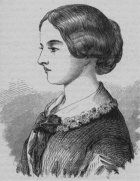Whole School
The effective history coordinator must work across the whole school, both in terms of inclusive, innovative curriculum development, enrichment, teaching and learning and resourcing as well as raising the profile of the subject across the whole school. The whole school aspect of the role may be in terms of history feeding into a whole school improvement or development plan, meeting the CPD requirements of teachers across the school, displays, assemblies or projects.
Sort by:
Date (Newest first) | Title A-Z
Show:
All |
Articles |
Podcasts |
Multipage Articles
-

Ideas for Assemblies: The life stories of refugees - Judith Kerr
ArticleClick to view -

Ideas for Assemblies: historical events
ArticleClick to view -

Ideas for Assemblies: the role of the international community in the First World War
ArticleClick to view -

OFSTED, primary history and creativity
ArticleClick to view -

Planning for history - the coordinator's perspective
ArticleClick to view -

Primary history and British values
ArticleClick to view -

Progression and coherence in history
ArticleClick to view -

Raising the profile of history in your school
ArticleClick to view -

The National Curriculum for History from September 2014: the view from Ofsted
ArticleClick to view -

The digital revolution
ArticleClick to view -

Thematic or topic based whole school curriculum planning
ArticleClick to view -

Transition Key Stage 2 and 3
ArticleClick to view -

Using cemeteries as a local history resource
ArticleClick to view

